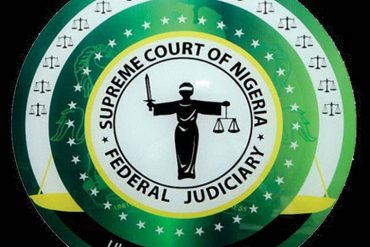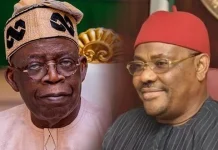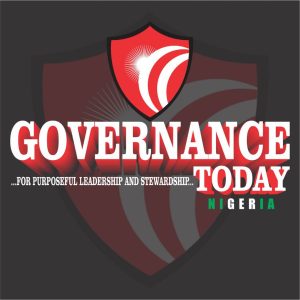The Supreme Court has reserved judgement in the suit filed by 19 states challenging the Act establishing the Economic and Financial Crimes Commissions (EFCC).
The apex court reserved the judgement after parties in the suit argued their case.
Meanwhile, before the case was reserved for judgement, Anambra, Adamawa and Ebonyi on Tuesday withdrew from the suit instituted by Kogi State and 18 others to challenge the constitutionality of the law establishing the EFCC and the Independent Corrupt Practices and other related offences Commission (ICPC).
A seven-man panel of justices, led by Justice Uwani Abba-Aji, struck out the names of the three states from the suit marked: SC/CV/178/2023 after listening to the application for the withdrawal by each state separately.
The application for withdrawal by Anambra, Adamawa and Ebonyi were brought by the Attorney General of the respective states where they sought the pray of the apex court to strike out their states from the suit.
Consequently, the apex court in a unanimous decision by seven justices, court struck out the names of the three states of Anambra, Adamawa and Ebonyi from the suit.
Earlier in the proceeding, the Attorney General of the Federation, Lateef Fagbemi, SAN craved the indulgence of the court to allow for reply on point of law to be deemed filed.
In their ruling, the apex court granted the application by the defendant to recognise the reply on point of law.
Meanwhile, the Attorneys general of Nasarawa and Osun state have applied for consolidation in the suit.
Counsel to Kogi State government, Abdulwahab Mohammed, SAN, argued that the EFCC Act was defective as it was mere adoption of United Nation Convection Against Corruption.
He argued that the establishment of the commission was not carried out in line with Section 12 of the Constitution spelling out the procedure for such body and prayed the court to abolish the anti-corruption agency.
In response, the Defendant said the action or inaction of the former Attorney General of the Federation, Kanu Agabi, has no place in this at all.
The Attorney General who is the sole defendant in the suit argued that the law did not mention the United Nation, but that Section 15, subsection 5 of the 1999 Constitutional backs the Nigerian state in abolishing all forms of corruption.
Fagbemi said if the court goes ahead to set it aside, it would have many negative consequences, especially on previous decisions.
The Supreme Court has therefore reserved judgement in the suit for a date that would be communicated to the parties.










